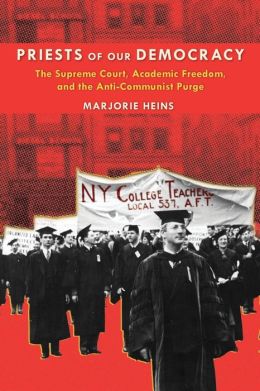 H-Net has posted several new reviews this week, one of which is of Edgar J. McManus and Tara Helfman's Liberty and Union: A Constitutional History of the United States (Taylor and Francis).
H-Net has posted several new reviews this week, one of which is of Edgar J. McManus and Tara Helfman's Liberty and Union: A Constitutional History of the United States (Taylor and Francis)."In their new concise edition of Liberty and Union, Edgar J. McManus and Tara Helfman have done an admirable job of condensing what is a complicated and nuanced area of history into a “short” textbook. They focus on liberty as the cement that holds the Union together and forms the basis for constitutional development. While the book is promoted as an abridged history designed for single-semester courses, given its length and complicated material, it would be better suited for a two-semester class."Another H-Net review is of The Woman Suffrage Movement in America: A Reassessment by Corrine M. McConnaughy (Cambridge).
"She argues that previous studies of the woman suffrage movement focused too closely on the suffragists and not enough on the lawmakers who actually gave women the right to vote. To fill this void, she examines the legislative process in several states to discover how and why a majority of their legislators were convinced to support woman suffrage."Other book reviews new on H-Net include a review of Brent Tarter's The Grandees of Government: The Origins of Persistence of Undemocratic Politics in Virginia (UVA Press), and a review of After Slavery: Race, Labor, and Citizenship in the Reconstruction South edited by Bruce E. Baker and Brian Kelly (University Press of Florida).
In The Washington Post Alice Goffman's On the Run: Fugitive Life in an American City (University of Chicago Press) is reviewed."Coeditors Baker and Kelly, along with the contributors, provide an informative study of labor history in the Reconstruction South. The essays show that the working-class narrative is key to a complete understanding of the remaking of the South. Raising provocative questions about black/white relations in the labor movement, workers' responses to labor legislation, and the role of gender (especially conceptions of manhood), the work encourages additional analysis of laborers' experiences. In sum, After Slavery is enlightening scholarship on the history of labor and citizenship in the post-emancipation era."
The Daily Beast reviews Jack Shuler's The Thirteenth Turn: A History of the Noose (Public Affairs), which "features an evocative account of the U.S.-Dakota War of 1862, which reached its infamous nadir when 38 American Indians were hanged in public in Mankato, Minnesota. At the heart of this chronicle of the country’s “largest simultaneous execution” is a mesmerizing bit of prose that even the most jaded reader is likely to find moving."
And, The Washington Post has a review of Feminism Unfinished: A Short, Surprising History of American Women's Movements by Dorothy Sue Cobble, Linda Gordon, and Astrid Henry (Liveright).
"“Feminism Unfinished,” however, argues that the “wave” metaphor obscures the history of a continuous American women’s movement sustained by labor activists, civil rights advocates and social-reform campaigners, who may have looked placid on the surface but were paddling like hell underneath. Each of the three authors contributes a chapter to their history of American feminism, and they declare together in their prologue that “there was no period in the last century in which women were not campaigning for greater equality and freedom.” They hope that uncovering the “multiple and unfinished feminisms of the twentieth century can inspire” the women’s movements of the 21st. That’s the surprise signaled in the teasing subtitle."





















